“You can never have too much of a good thing”.
That’s a saying most of us have heard at some point in our lives. But is it really true when it comes to healthy foods that we know are good for us?! Well, today I’ve put together a list of 6 common health foods that many people tend to overdo. While all these foods are part of a balanced nutritious diet, they should be enjoyed in moderation to avoid a variety of health issues explained below. I have also listed the suggested serving sizes for each group to take out the guesswork for you 🙂
1. Nuts & seeds
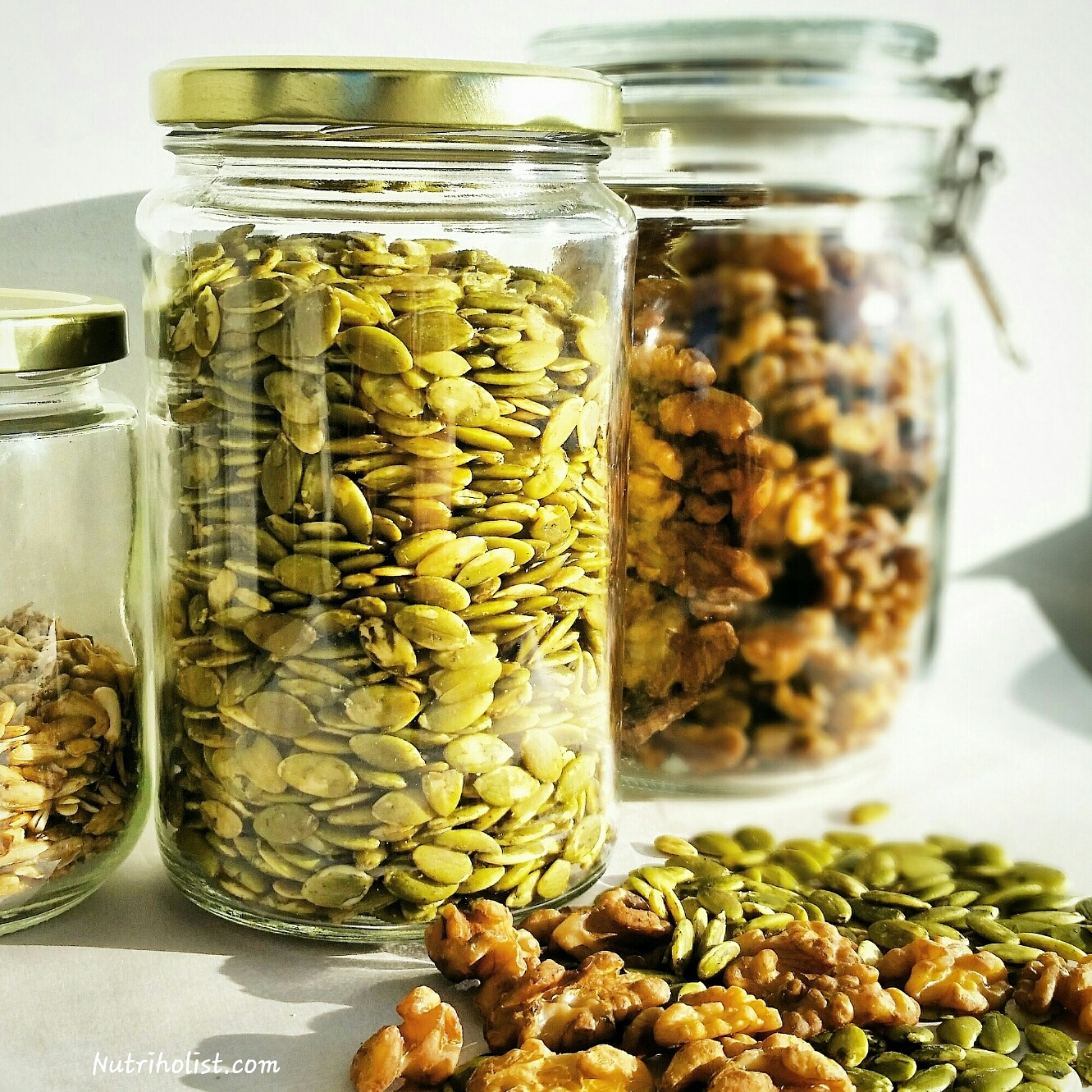
Packed with protein, fiber, and healthy fats, nuts and seeds offer various health benefits such as lowering LDL (bad) cholesterol, increasing HDL (good) cholesterol and fighting heart disease. However, due to their high protein and fat content, over-indulging in nuts and seeds is not a good idea and can instigate weight gain. Also, most packaged nuts and seeds in the market are salted using regular table salt and sometimes even coated with rancid vegetable oils, leading to elevated blood pressure and increasing the risk of heart disease. So make sure to always opt for raw nuts and seeds or make your own roasted salty version if desired (instructions to follow).
Another issue with nuts and seeds is that even in their raw state they are high in antinutrients and toxic substances such as enzyme inhibitors, phytic acid, and tannins that impair digestion and can lead to gastrointestinal issues such as bloating and/or gas. These antinutrients can also prevent proper absorption of minerals in the body and lead to nutrient deficiencies.
The good news is that these natural inhibitors can be minimized or eliminated by soaking or sprouting. Soaking nuts and seeds for 8-24 hours in warm water neutralizes enzyme inhibitors, increases the nutritional profile and vastly improves digestion. Make sure to discard the soaking water and fully rinse them afterward. If you choose to consume them wet, do it in small batches and store them in the fridge to avoid mold overgrowth. Otherwise, you could soak in large batches, dry them in a dehydrator or oven on the lowest possible setting (max 150 F) for 24 – 48 hours to remove all the moisture without damaging the oils or killing the enzymes. Dried nuts and seeds will keep for months stored in airtight glass jars in the pantry. If you prefer to have them roasted and salted, sprinkle them with high-quality sea salt (such as pink Himalayan, gray or Celtic sea salt) and heat them in the oven at 170-200 F for about 15 to 20 minutes. Higher heat destroys some of the enzymes and reduces health benefits, but yields a crunchier texture.
Suggested serving size: One serving of nuts and seeds is about a 1/4 cup of each per day. This amount should just fit into the palm of your hand. If going for nut/seed butters, a daily serving is equal to 2 tablespoons.
2. Healthy fats such as avocados, coconut oil, extra virgin olive oil
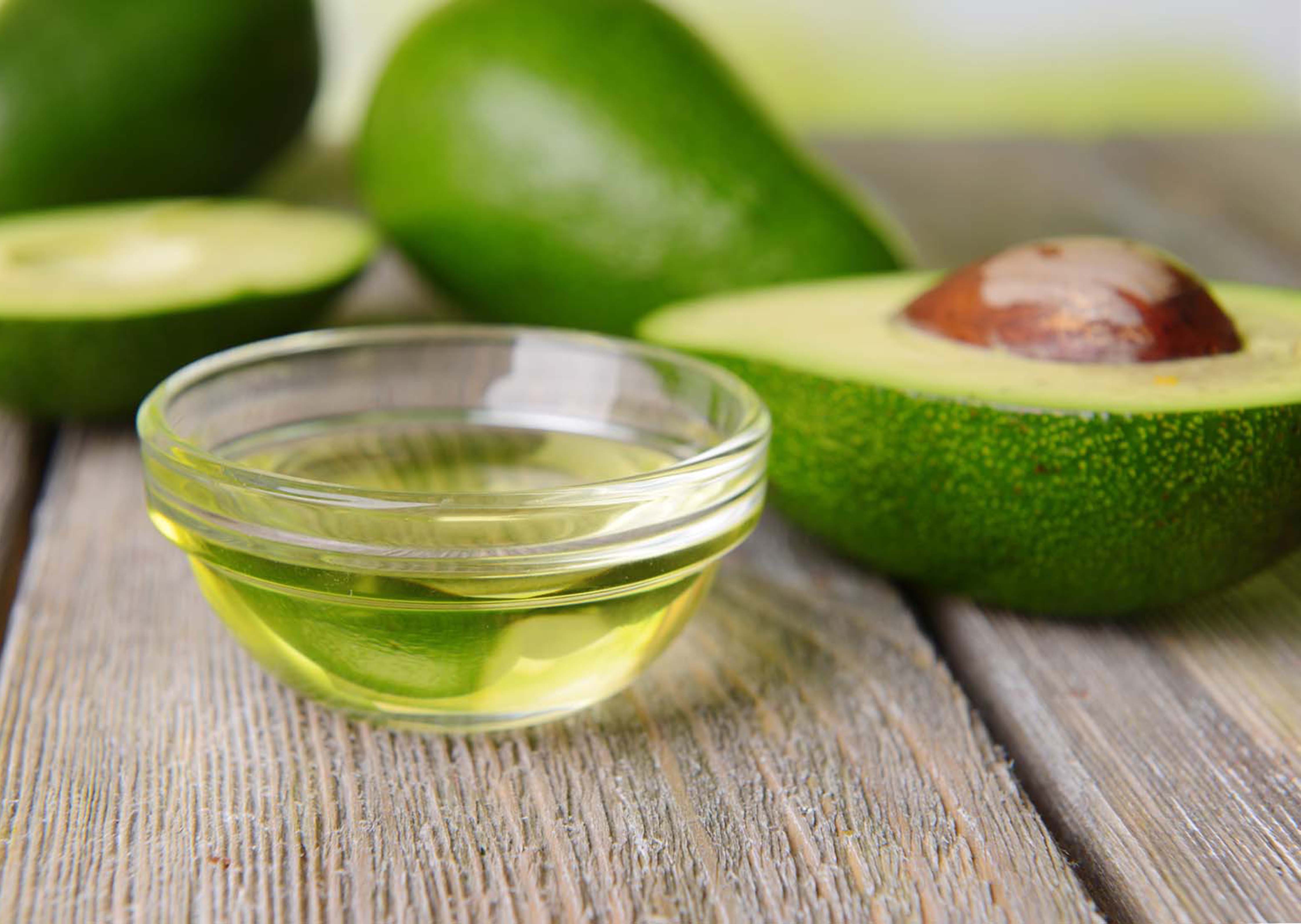
Healthy fats such as saturated fats in coconut oil and monounsaturated fats found in avocado and olive oil are crucial to brain function and normal growth and development. Fats offer the building blocks for cell membranes and a variety of hormones and hormone-like substances. They provide a concentrated source of energy and help you feel satisfied and full for longer by slowing down digestion. Fats also act as carriers of fat-soluble vitamins A, D, E and K, thus playing a vital role in their absorption. However, consuming too many healthy oils can lead to dietary imbalances. Since fats are digested at a slower rate than other food groups, eating too much of them might leave you not as hungry for other essential nutrients such as high-quality protein, vegetables, fruits, etc, resulting in nutrient deficiencies. Furthermore, introducing a lot of healthy fats such as coconut oil in the diet too fast could lead to severe die-off reactions such as upset stomach, bloating, diarrhea, headaches or flu-like symptoms, due to its antiviral, antibacterial, and antifungal properties. So the key is to introduce them in small amounts and working your way up gradually.
Suggested serving size: Half a medium-sized avocado and 1-3 tablespoons of unrefined coconut or real extra virgin olive oil per day.
3. Fruits
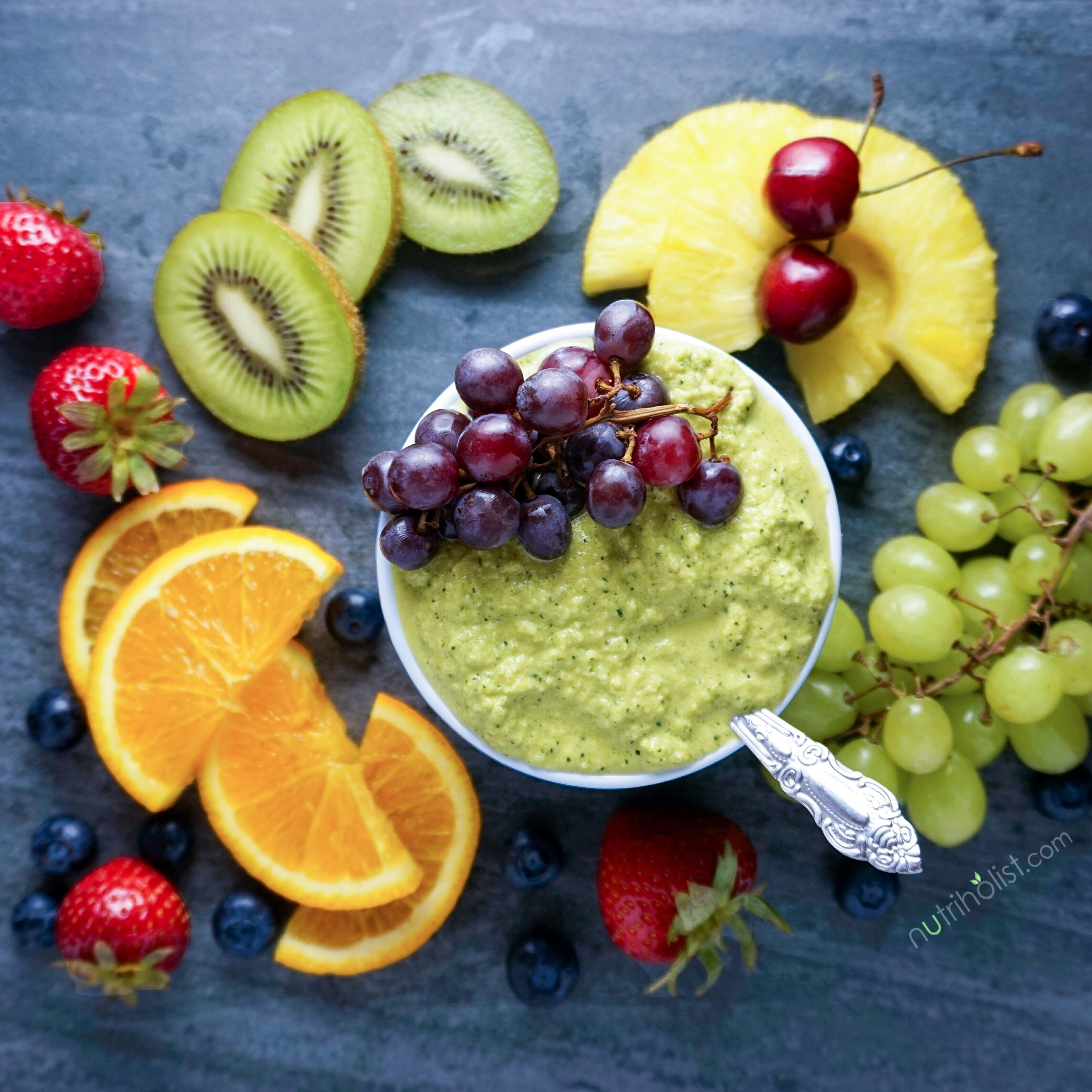
Fruits are delicious and loaded with vitamins, minerals, fiber, antioxidant pigments and other phytochemicals that reduce the risk of disease when eaten in moderation. However, most fruits are high in the simple sugar fructose, which is metabolized to fat in the liver. When fruits are eaten as whole or in smoothies, the fiber helps slow down the release of sugar into the blood and prevents sudden spikes. But eating large amounts of fruits and fruit juices, especially those with a high glycemic load (such as dates, bananas, pineapples, mangoes, grapes, and cantaloupes) can raise blood sugar levels, provoke insulin and leptin resistance and increase the risk of type 2 diabetes. Keep in mind that dried fruits also pack a sugary, calorie-dense punch, so it is best to stick with fresh options when possible or limit your consumption to 1/8 cup per day.
Suggested serving size: 3-4 daily servings of fresh, seasonal or frozen fruit, preferably organic.
4. Wild fish
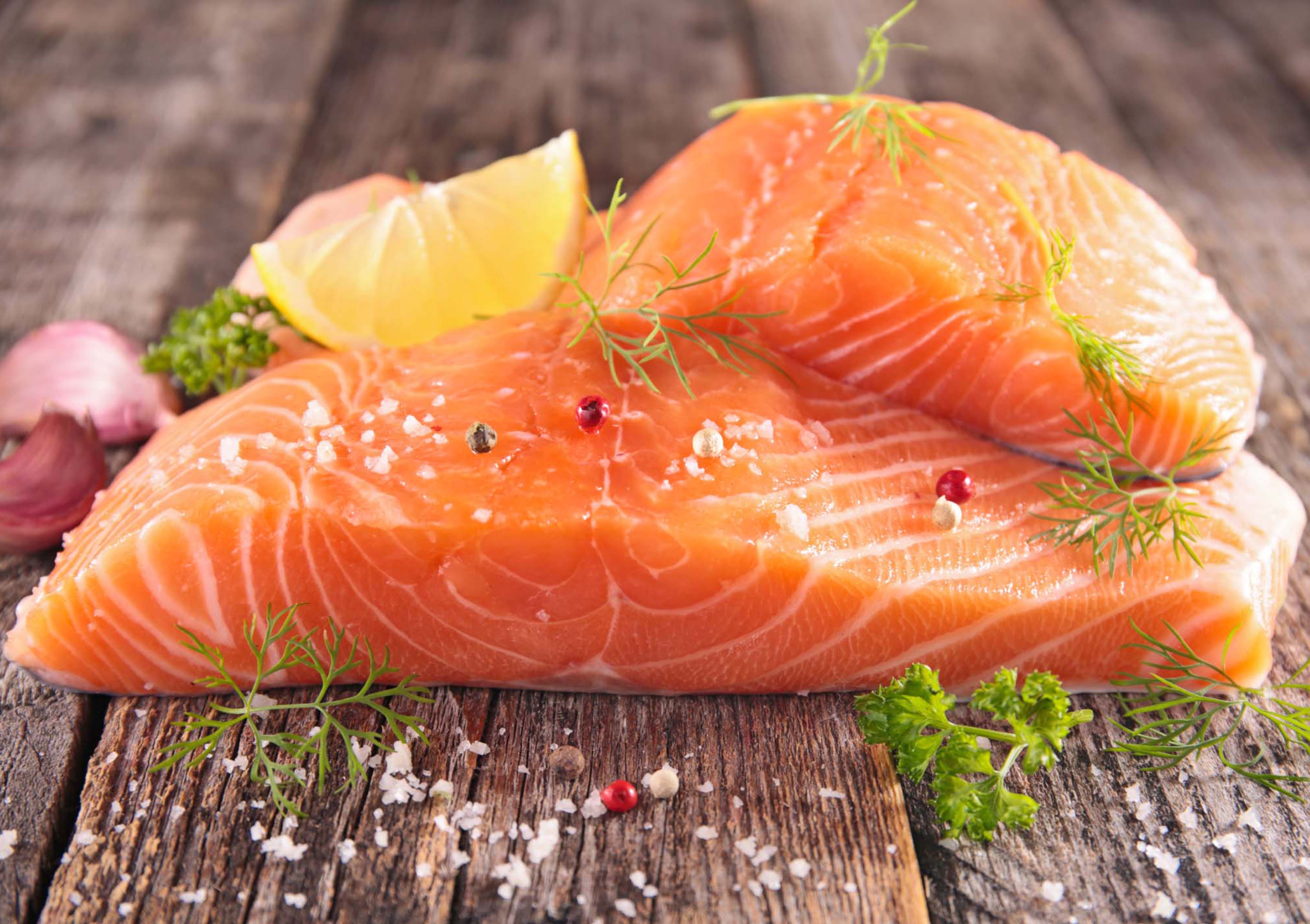
Wild fish and shellfish are great sources of high-quality protein and omega-3 fatty acids (aka the heart-healthy anti-inflammatory fats). However, due to the increased amounts of pollution from chemicals and radiation, you might be ingesting a side of toxins when you consume too much fish. In addition, some varieties such as big predatory fish (shark, sea bass, swordfish, king mackerel, bigeye, ahi, yellowfin and albacore tuna) contain higher levels of mercury that could be toxic in large doses, leading to sensory impairment and damage to the nervous system. As a rule of thumb, smaller is better when it comes to fish. So opt for the little guys such as anchovies, sardines, scallops, wild Pacific salmon, eel, crab, clams, oysters, and skipjack (canned light) tuna and enjoy them in moderation.
Suggested serving size: Up to 2 servings of the smaller/cleaner varieties a week and 3-6 servings of the bigger/higher risk types a month.
5. High-quality protein

The amino acids in proteins are the building blocks of our cells and hormones, so the body cannot function without them. However, too much protein can put excessive strain on the digestive system, especially the kidneys, which are in charge of eliminating the nitrogen waste products from the blood. Consuming large amounts of protein can also adversely impact the pathways that play an important role in cancer and regulating the aging process.
Moreover, research suggests that protein-rich diets increase the activity of bacterial enzymes that produce toxic metabolites, triggering inflammatory responses and disrupting the entire microbial community. Imbalances in the gut bacteria weaken the immune system, making it more susceptible to infections and diseases.
Suggested serving size: About 0.5 gram of protein per pound of lean body mass from a variety of plant-based (i.e. legumes, hemp seeds, chia seeds, quinoa, seaweeds) and high-quality animal sources (i.e. organic grass-fed beef, organic pasture-raised chicken and eggs, wild fish, organic kefir and yogurt), which roughly translates to 40-70 grams of protein a day for most people.
6. Water
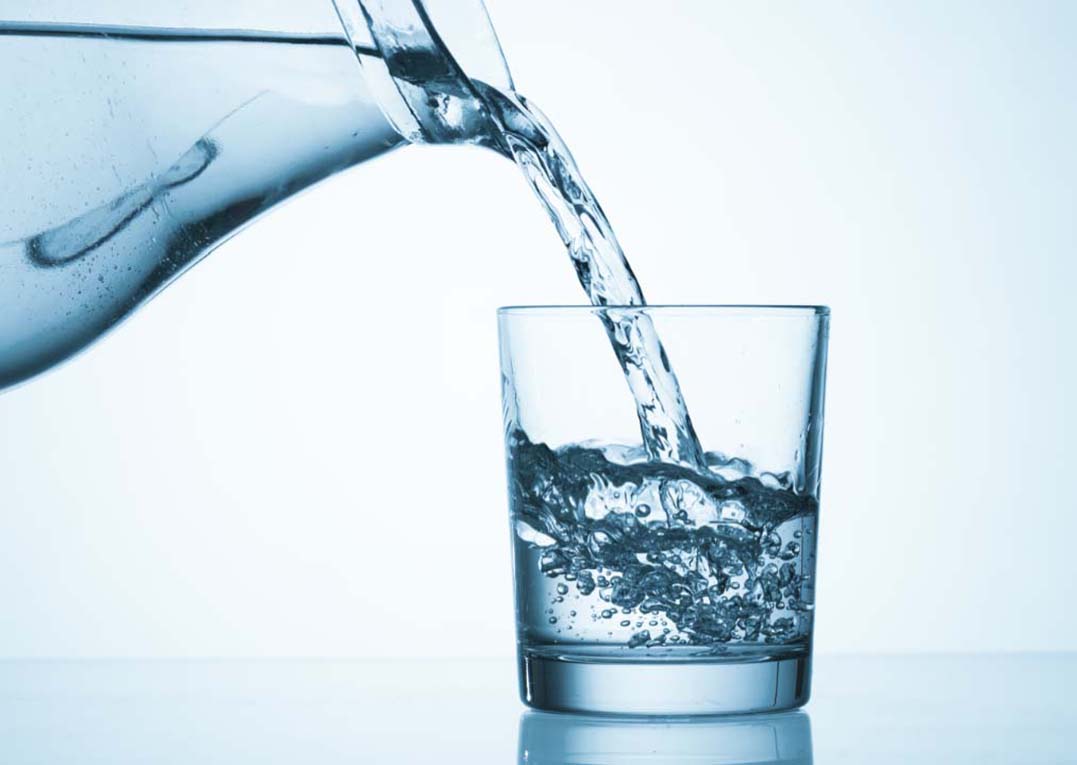
Proper hydration is absolutely necessary for optimal health. However, drinking too much water can dilute the sodium levels in the body and affect the sodium-potassium pump in the cells. Sodium is a mineral essential for keeping the correct balance of water levels in the cells. Low sodium levels triggers water to rush into cells, causing the brain to swell, resulting in convulsions, coma, brain damage and even death. Therefore, it is best for athletes and marathon runners to sip on sports drinks during long bouts of intense exercise and make sure to replace lost fluids as well as lost electrolytes such as sodium and potassium afterward.
Suggested serving size: There is no general formula to determine the amount of water each person needs as it varies based on their weight, diet, level of activity, health conditions and the climate they live in. However, you should aim to drink about 0.5-1 ounce of water per each pound of your body weight daily. If the urine is consistently transparent, you need to reduce your water intake.
So, once again I’d like to encourage you to continue enjoying these foods (and drinks), but make sure that you don’t go overboard, as too much of a good thing can, unfortunately, deteriorate your health. Including these nature’s gifts into the diet in the right proportions though can help support healthy weight management and provide the body with ample nutrients.
P.S. If you’d like to have an already laid out meal plan to easily follow, providing you with delicious and nutritious breakfasts, lunches, dinners, and snacks in the right portions, check out the Happy Bites Meal Plan now.



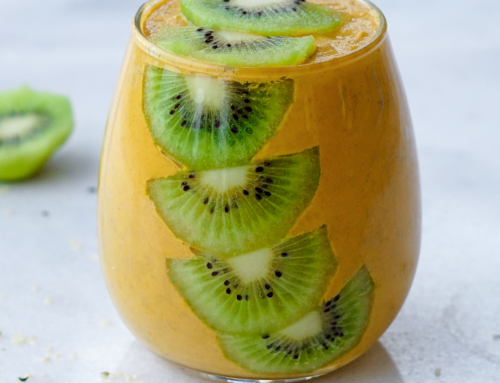

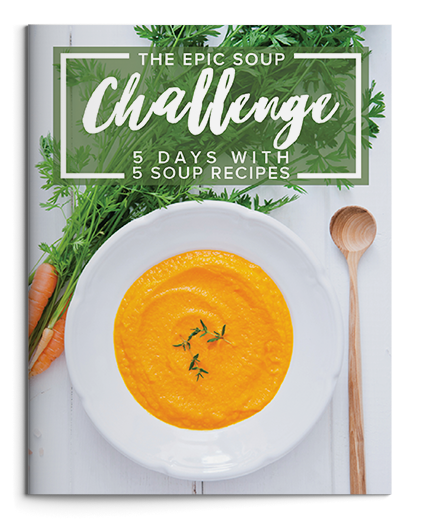
Leave A Comment